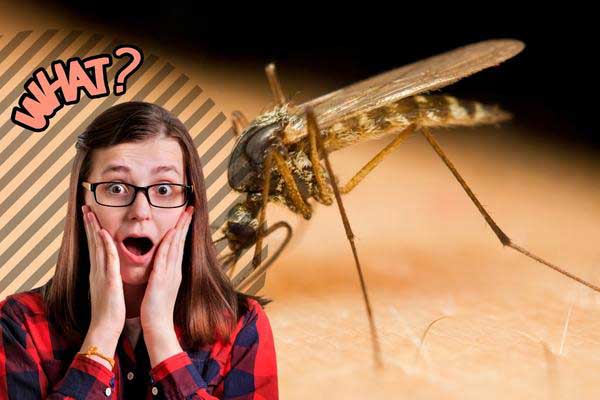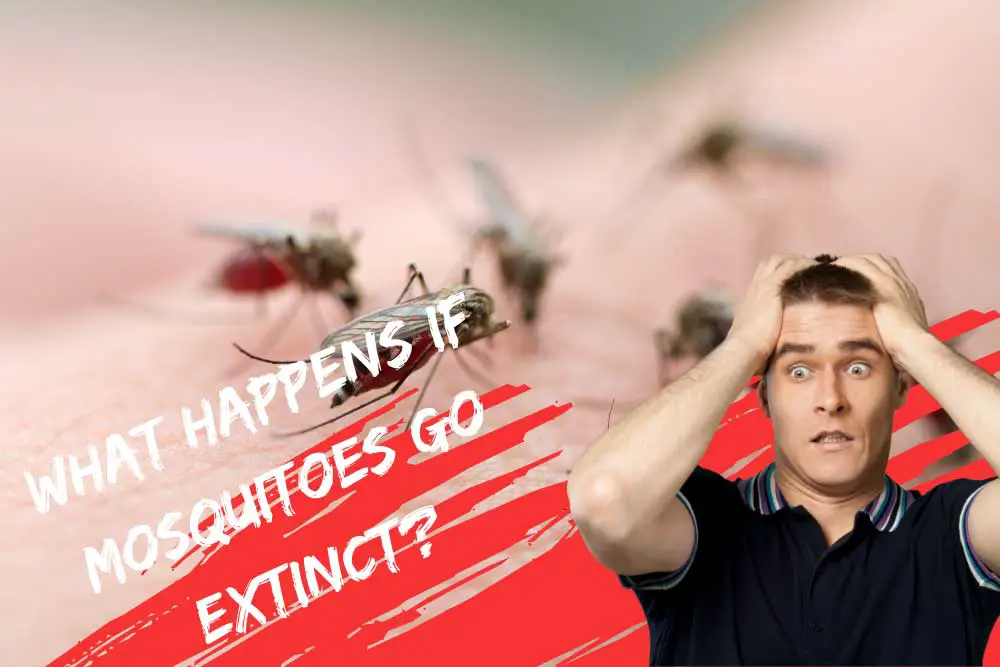Could you believe that mosquitoes are considered the deadliest organism on our Earth? Why is this tiny creature so harmful that we have deployed chemical repellents and insecticides in a huge amounts, drained their breeding areas, and introduced natural predators to eliminate it but could not be successful? All these efforts bring some new technologies to eradicate mosquitoes. This species is the only one to decide to be extinct.
What happens if mosquitoes go extinct? Theoretically, the extinction of mosquitoes results in disturbing our ecosystem affecting many plants that depend on them for pollination and wiping out animals that depend on them for food. Practically elimination of all mosquitoes is not possible throughout the world. Small areas can be free from it by low-tech and hi-tech methods.
This sounds good that all mosquitoes vanish away but it is not easy and practical so read this content and understand why it is difficult.
What Happens When Mosquitoes Disappear From Earth
Mosquitoes are a nightmare for the people of low-lying areas, especially in poor countries. Nobody can imagine how much destruction it brings to humanity. Death due to malaria, dengue fever, and yellow fever is far more than people die in the first and second world wars.
Can you think about what would happen if all the mosquitoes disappeared from the earth? It is not a good idea because the eradication of an insect that makes up an important part of our ecosystem is not suitable. Earth will be more dreadful without mosquitoes than with this.

What Will Happen If Mosquitoes Go Extinct
The extinction of mosquitoes brings some horrible results. Society suffers more due to this tiny creature. They carry germs that cause diseases and out of 725,000 people, 60,000 die every year due to malaria. In fact, out of 3500 total species only a few infected humans. The only female of these mosquitoes is dangerous (only female mosquitoes suck the blood during their breeding season)because it can transmit several germs while sucking blood from humans. Following are some bad effects that may occur when all mosquitoes vanish from the earth’s surface.
Mosquitoes are the main source of food for many fishes, birds, lizards, frogs, and bats. Thus many species, especially those who solely depend on it, may also become extinct.
- Mosquitoes are good pollinators and if they disappear many species of plants will also become extinct. Especially very small flowers that can be pollinated only by mosquitoes.
- Mosquitoes are diets of many animals so very important in the food chain
- According to some entomologists and ecologists, they protect the Amazon rainforest. The reason behind this fact is they are deadly toxic and annoy the people who come to cut down the trees.
- Most scientists believe that an overcrowded world is dangerous for the delicate ecosystem of the biosphere. Mosquitoes check the human population by huge death rate due to the pandemic malaria in the past. Oh! true but bitter fact. Do you also agree with this?
Positive Aspect Of Wipeout Mosquitoes From The Earth
We can imagine how beautiful and healthy this world would be without mosquitoes. Following are some points that explain the facts.
- Million people would not get malaria and other dangerous diseases and the mortality rate decreases with time.
- Not only man but animals, cattle at farms, pets at homes, and wild animals in forests are also affected by mosquitoes. All become healthier and stronger if this tiny creature wipes out from the earth.
- The humming sound of mosquitoes could be stressful and many people could not sleep the whole night. It will be a piece of happy news for them if they get rid of all the mosquitoes.
How Could We Finish Mosquitoes From Earth?
There exist many methods to control and eliminate mosquitoes. Here we discuss hi-tech and low-tech methods. Low-tech methods include physical, biological, and chemical methods.
Low-Tech Methods
1. It is said bats are the best predator of mosquitoes. It can kill 600 mosquitoes in an hour. But it will also increase the bat population.
2. The best way to finish them is to destroy their breeding areas. Mosquitoes lay eggs and grow their larvae in standing water. But practically it is very difficult to dry all the standing water sites.
A spray of insecticides like Permethrin that are sprayed with oil on vegetables and green areas. This destroys the central nervous system of mosquitoes and reduces their population
3. Larvicide is another important drug sprayed on standing water to reduce the growth of larvae. These are affected but can not wipe off mosquitoes from the community.
Hi-Tech Methods
For better eradication of the whole population, the best way is to use hi-tech methods.
If we understand its reproductive cycle we can also check its growth. Female mosquitoes bite us not for tasting our blood but for the growth of their larvae while the majority of it is herbivorous.
So we need to produce genetically modified mosquitoes. These produce a sterile male. These males do not bite humans. It takes decades but finally, their generation may finish.
Production of mutants is another way to reduce its population to nearly 90%.
Can We Live Without Mosquitoes
Perhaps every person says, yes we can live without mosquitoes. If you are worried about the diet of many animals who eat them. Don’t worry, these animals can find alternative sources.
If some zoologists are worried about the destruction of the food chain then why should we focus on creating and promoting species that are not harmful like Anopheles, dengue, and other harmful species? So the majority of us claim that we better live without this.
What Would Happen To Humans If Mosquitoes Went Extinct
Its removal brings a strong and healthy society for human beings. It is estimated that in the past 50,000 years half of the death was due to malaria. Other than Plasmids that cause malaria, viruses like Zika, West Nile, and dengue cause many deaths in the human population.
For poor countries that could not spend so much money on their health, the elimination of mosquitoes will be a source of happiness. Some ornamental plants that depend on mosquitoes may suffer but a majority of organisms including cattle and other farm animals feel comfortable in mosquito-free zones.
Will Mosquitoes Ever Go Extinct
Whatever methods we use to kill mosquitoes, will never vanish 100% from the earth. Think about its existence which has always occurred throughout the history of man. It is impossible to destroy all mosquitoes. So never expect to kill all of them or their disappearance from our planet.
Why Don’t Mosquitoes go Extinct?
Mosquitoes are most successful despite several ways to kill them. What makes them perfect for living in all conditions are:
- Mosquitoes wing morphology has made them undetectable to their prey.
- They develop resistance against insecticides, sprays, and other drugs used to control them.
- Mosquitoes have excellent growth in warm humid regions. Global warming makes them more invasive species.
What Would Happen If Suddenly All Mosquitoes Die
Mosquitoes make a big part of biodiversity, if all mosquitoes suddenly die, a gap is formed because new insects like midges can take the time to fill the place of mosquitoes. The world will be so silent because buzzing mosquitoes are not present.
Everything in this world is interconnected. You can not kill the whole population of a species. killing a few organisms is not a problem. Even killing thousands of members of the same species is not noticed but killing the entire population of some species has a severe outcome.
Conclusion
The extinction of mosquitoes would have both positive and negative consequences. On the positive side, the elimination of these pests would mean the end of diseases such as malaria and Zika, which would greatly improve public health and save countless lives. However, the disappearance of mosquitoes would also have significant ecological impacts, as they play important roles in various ecosystems as both predators and prey.
Overall, while it may be tempting to imagine a world without mosquitoes, the consequences of their extinction are complex and far-reaching. Instead of trying to eliminate these insects, it may be more effective to focus on controlling and mitigating the negative effects they have on human health, while also working to protect and preserve the ecosystems that rely on them.

